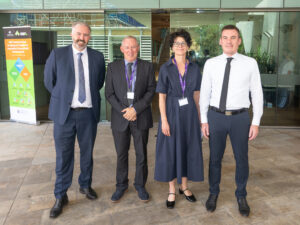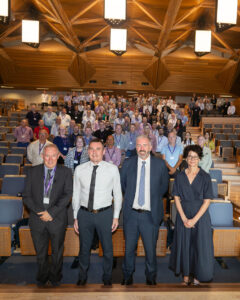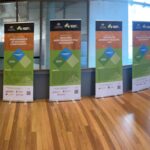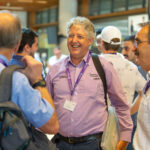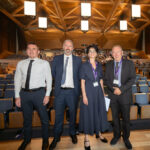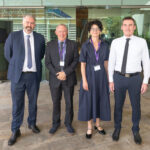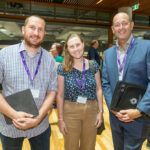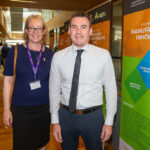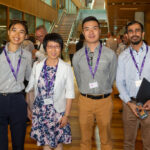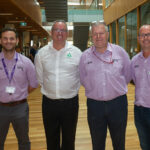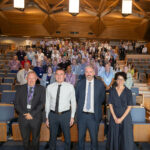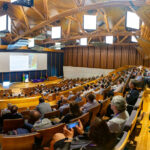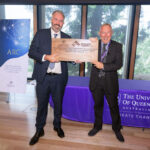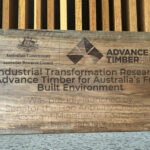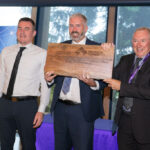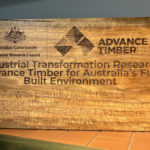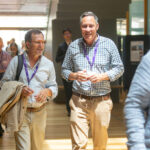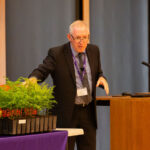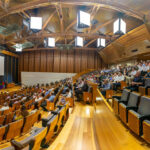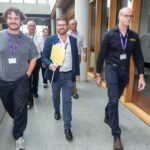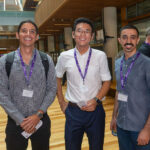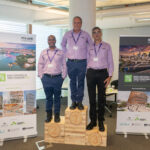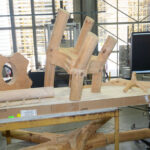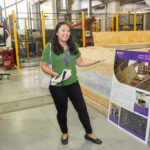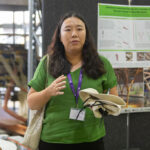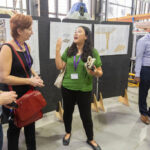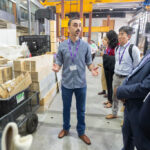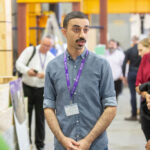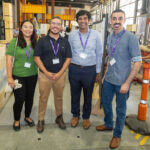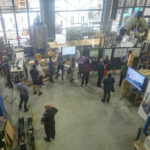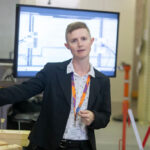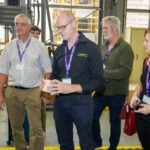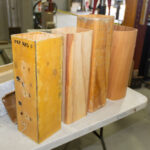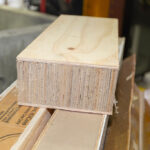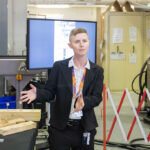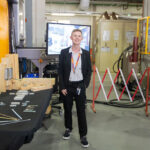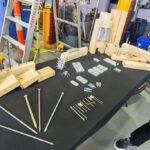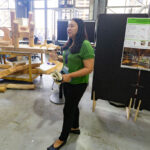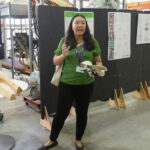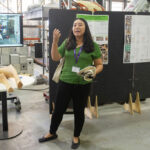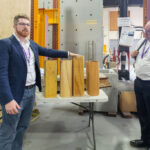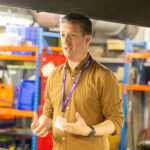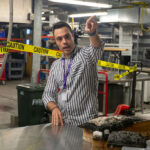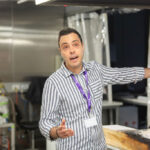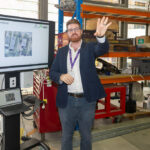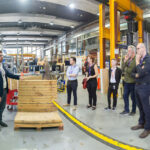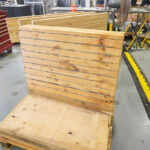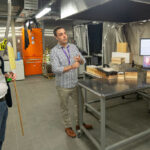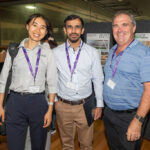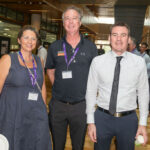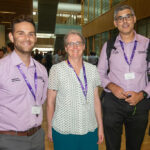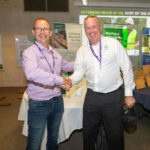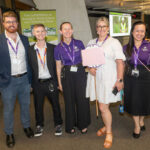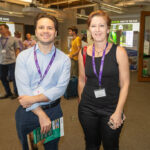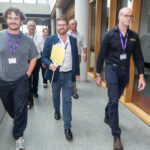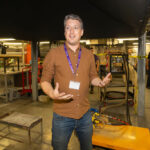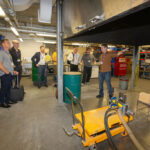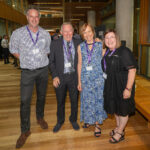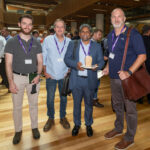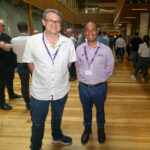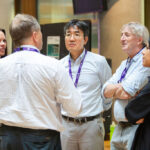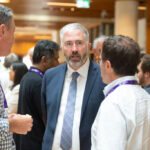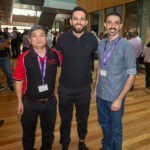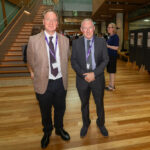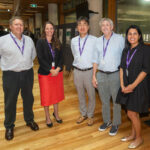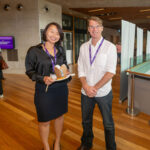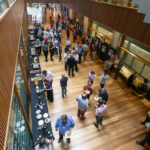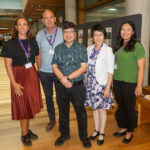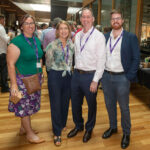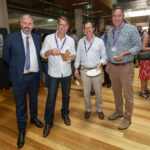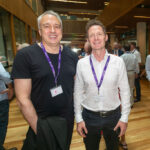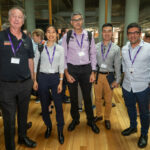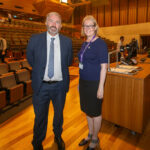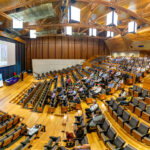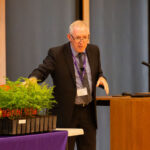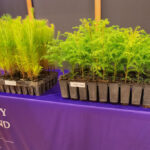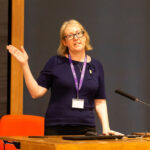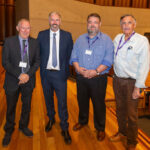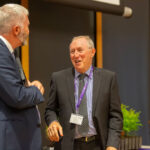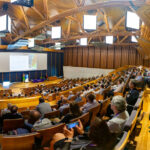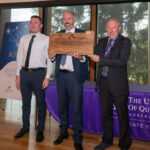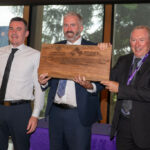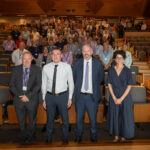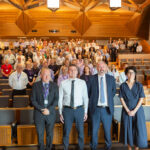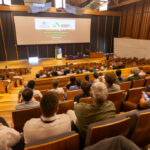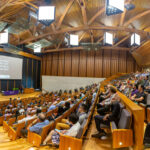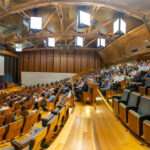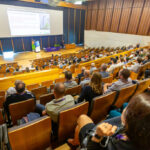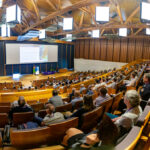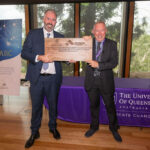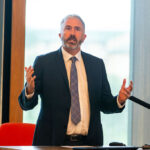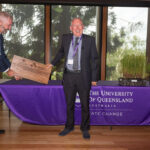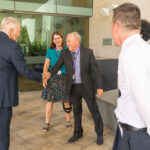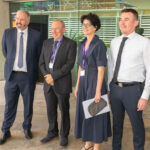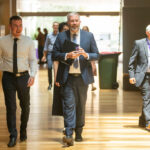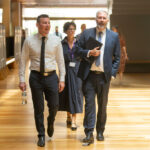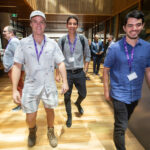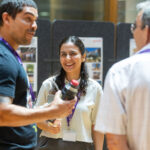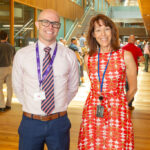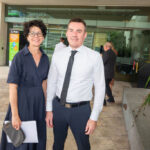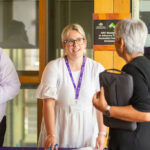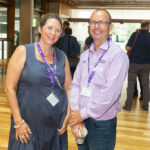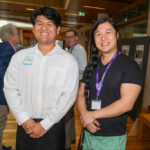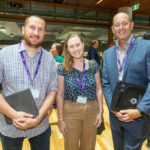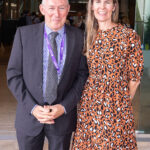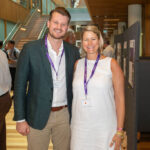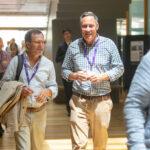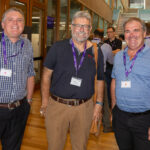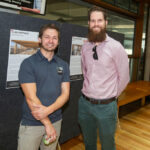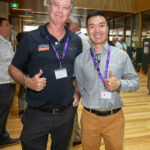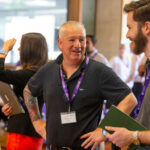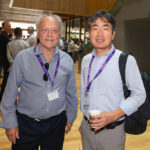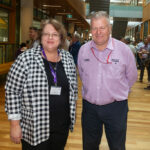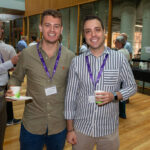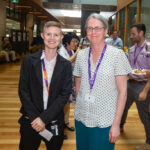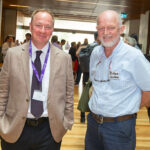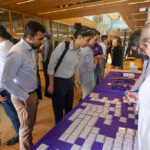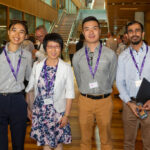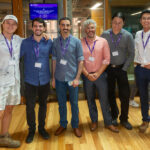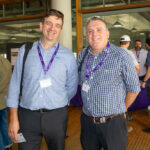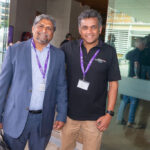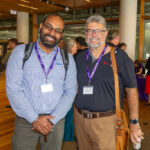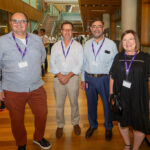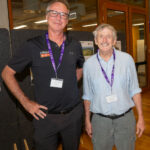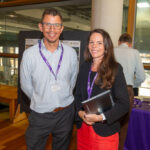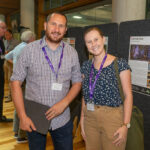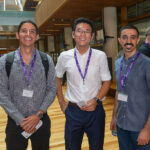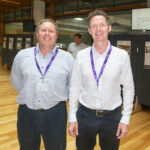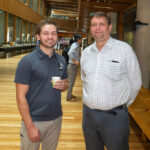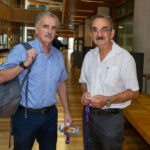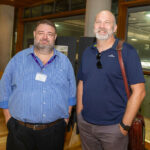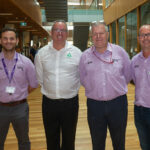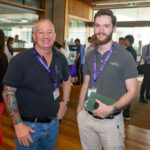31
Jan
ARC Research Hub to Advance Timber for Australia’s Future Built Environment launched by Senator the Hon Anthony Chisholm
The University of Queensland leads $16.5 million research hub focused on advancing sustainable timber in Australia’s future built environment.
For decades, gleaming towers of steel and concrete have defined city CBDs.
It’s as if we’ve built our cities to match our science fiction dreams of what our future should look like, rather than a future based on what’s sustainable and what’s best for our health and well-being.
Steel and cement are responsible for 10 percent of mankind’s greenhouse gas emissions,[1] and their extensive use in construction needs to be reconsidered if we’re to reach net zero by 2050.
But what if we had an alternative building material that’s as strong and cost-effective, as well as more natural and renewable? What if we could ‘grow’ high rise buildings?
We can, and we are.
Assistant Minister for Education and Assistant Minister for Regional Development, Senator the Hon Anthony Chisholm, today (January 31) opened the new $16.5 million Australian Research Council Research Hub to Advance Timber for Australia’s Future Built Environment (ARC Advance Timber Hub), at The University of Queensland (UQ).
The ARC Advance Timber Hub will promote the use of sustainable timber in some of Australia’s biggest construction projects.
“Timber’s ability to sequester carbon, to reduce the carbon footprint of construction, makes it ideal for construction companies wanting to show their green credentials,” said UQ’s Pro-Vice-Chancellor (Research), Professor Rachel Parker.
Advanced technologies are now producing timber products that rival steel and concrete for strength and cost-effectiveness in the construction of multi-storey office and apartment buildings.
These engineered timber products are also relatively light weight, flexible, and safer to work with, said Professor Parker.
Engineered wood from sustainably managed forests can also be prefabricated offsite, fire-resistant, and reusable. And the construction industry is already demonstrating, dramatically, how well engineered timber works in mid to high-rise buildings.
A 10-storey office block at 25 King Street in Brisbane, a co-creation between Lendlease and Aurecon, is currently the tallest engineered timber office building in Australia.
It will soon be dwarfed by others, including the Atlassian hybrid timber building in Sydney[2] and a 191-metre tall C6 hybrid tower in Perth.[3]
Many of the industry partners involved in the ARC Advance Timber Hub are involved in the design and construction of many of these new buildings.
“What the ARC Advance Timber Hub helps us envisage and realise is an environment that’s a bit closer to the natural world – and one that’s also more practical, sustainable, and more suited to our well-being,” said Professor Parker.
“And that’s the other benefit of timber. It feels right, it feels natural, and research shows that timber in our buildings is good for our mental health and productivity.”
The ARC Advance Timber Hub builds on the work and expands the scope of the ARC Research Hub to Transform Future Tall Timber Buildings, which wound up in 2021.
Since then, said Professor Parker, it’s become increasingly clear that timber will play a key role in helping Australia transition to a circular and net-zero economy.
“Of course, now that we’ve had our researchers look more closely at the incredible advantages of timber, we’ve been able to develop the products that go a long way to replacing concrete and steel in many building applications. And of course, timber is the only modern building material that is truly renewable.”
The confidence in timber’s future role in the construction industry led to the ARC announcing in 2022 the funding for this new hub, based in UQ’s School of Civil Engineering.
Director of the ARC Advance Timber Hub, Professor Keith Crews, said there’s now a need to encourage and support more construction companies using engineered wood in building projects.
“This requires comprehensive research and development to demonstrate the benefits to both government and private sector building clients, coupled with motivating broader social demand for greater use of timber, along with a technical research agenda to motivate manufacturing investment.”
The hub is collaborating with 28 industry partners to help its researchers test and develop new materials for the construction industry.
“Collaboration between industry and academia is essential when we push back the frontiers of any field. And that’s really what we’re doing with the use of timber in the construction industry.”
The ARC Advance Timber Hub brings together many of the country’s best timber scientists, engineers, architects, and building experts.
Led by UQ, the hub employs chief investigators from 12 Australian Universities: UQ, Griffith University, The University of Tasmania, The University of Melbourne, The University of Southern Queensland, The University of Sydney, UTS, QUT, Deakin University, UNSW, RMIT, and Monash University.
It also has partner investigators from five international institutions in Sweden, New Zealand and Canada.
Today’s opening of the ARC Advance Timber Hub was also attended by ARC Acting Chief Executive Officer, Dr Richard Johnson; Queensland Government Architect Ms Leah Lang; senior UQ leaders, and industry and university partner representatives.
Please also see related UQ News Article: Timber efficiencies could help ease nation’s housing crisis
and Senator Hon Anthony Chisholm’s Media Release: New timber research hub to transform sustainable construction
ARC Advance Timber Hub Launch Presentation: Professor Keith Crews
Timber & Forestry ENews – Feb 8 2024: New timber hub at UQ already delivering results
[1] Steel, concrete and climate change – The Institution of Structural Engineers (istructe.org)
[2] The world’s tallest hybrid timber tower to be built in Sydney | CNN
[3] Australia will be home to the world’s tallest timber tower | CNN
